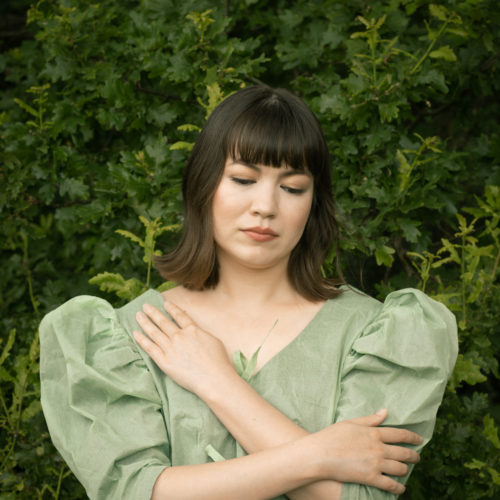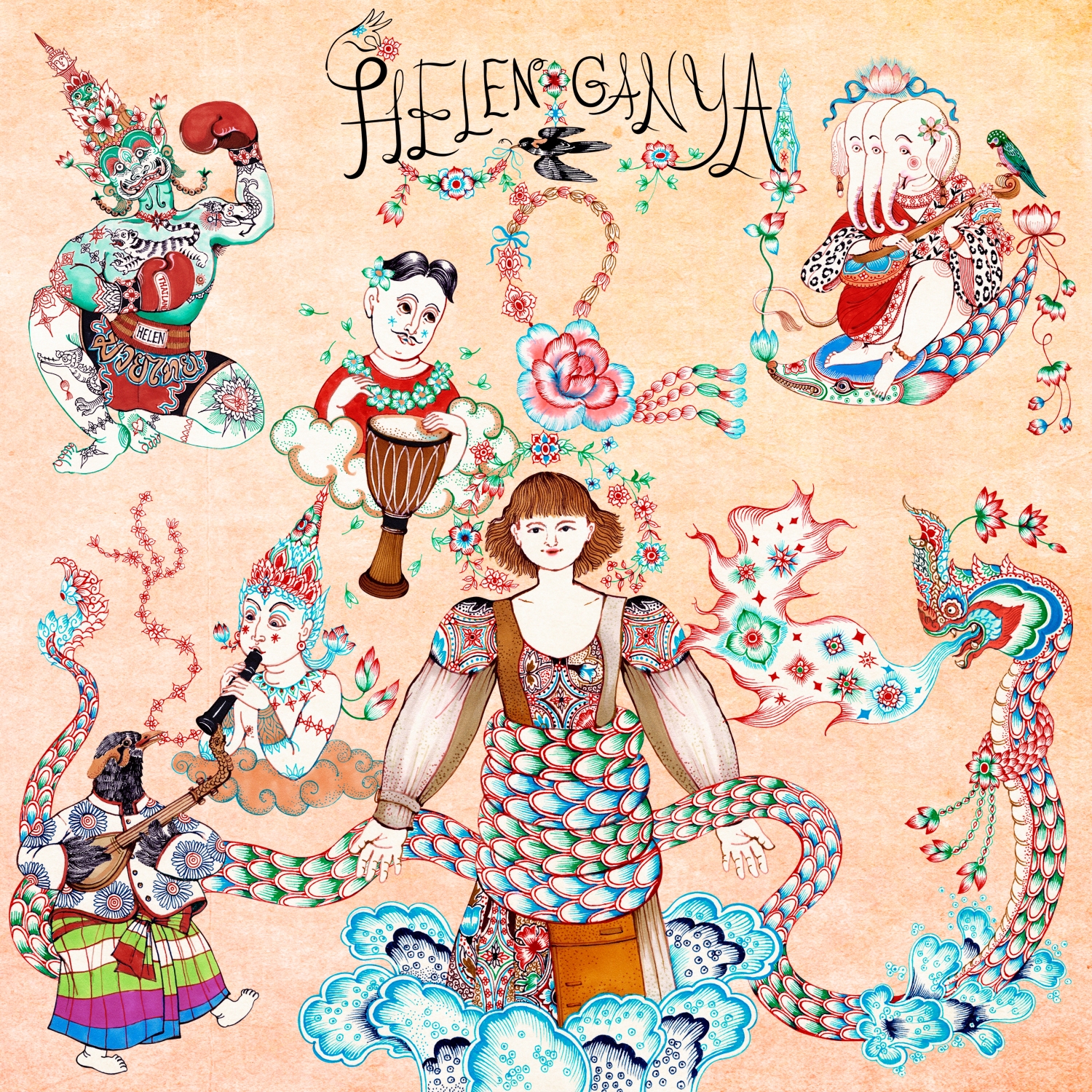
Share Your Care
—
Out February 07, 2025
—
Bella Union



In the summer of 2021, Brighton-based, Scottish-Thai songwriter Helen Ganya’s grandmother passed away. The grief hit the artist hard, not only because it marked the loss of her last remaining grandparent, but also because it felt like her links to being half-Thai were disintegrating, roots quaking and shifting in uncharted territories. Ganya grew up in Singapore, but spent her summers in the northeast of Thailand where her mum’s side of the family is from, visiting her grandmother. Where would all those memories go now that the person at the centre of them was gone? What was her relationship to this place without that glue? And so, in an attempt to process it all, Ganya began to write. “I got my diary and wrote every single memory of my time as a child in Thailand, spending time with her, my grandad, my aunts and cousins and everything,” she explains, “I had these snapshots of memories that I just wrote down because I just suddenly panicked: it was like, who am I, then?”
It was for this reason that, while Helen Ganya was waiting for her acclaimed 2022 album, polish the machine, to come out, she was already working on what would become her arresting new record, Share Your Care. Ganya has been releasing music since 2015 (formerly under the moniker Dog in the Snow). In the records she’s put out over the years, she’s shown a proclivity towards dark and artful rock and off-kilter sounds, garnering praise from the likes of the Sunday Times, Uncut, Clash, Loud & Quiet and more. But Share Your Care marks a new era, building on Ganya’s past sonic worlds and interspersing them with traditional Thai instrumentation, resulting in a plush, luminous, psych-tinged affair that is full of feeling.
Previously, Ganya had been hesitant to draw on her heritage in her music, somewhat wary of the orientalising gaze of the west. But after a dream about her late grandmother laid the foundations for what would become the track ‘Horizon’, Ganya realised she didn’t want to curtail herself either. She began to piece together a series of new songs at home, enjoying the catharsis of the process, using the MIDI as a temporary means of conveying the timbre of Thai instruments, before bringing those early incarnations to her frequent co-producer Rob Flynn. The pair went to Buddhapadipa Temple – the Thai Buddhist temple in Wimbledon – where they met instrumentalist Artit Phonron, who could play ranat ek, saw duang and khim, and later worked with Chinnathip Poollap, a musician in Thailand who could play the Thai oboe or “pi”; both would contribute to Share Your Care. She also called on Anglo-Thai artist John ‘Rittipo’ Moore to perform flutes and saxophone on the album.
The result is a triumphant, abundant record, teeming with heart and cinematic warmth. The title track is one of the first Ganya worked on, melding her own style with those Thai sounds. The celebratory song is based on her memory of following the elder women in her family – her mother, her aunts, her late grandmother – to go and visit her granddad’s grave, bringing offerings (the video, directed by Am Picha, features a similar storyline, cut through with shots of Thailand’s resplendent natural world). “It felt like quite a magical journey to go down the trail to find him again,” she says, “It’s just trying to get that sense of honouring your ancestors and still feeling that they’re there. Sharing your grief, sharing your care, not forgetting them; bringing them food and water.” In the aftermath of bereavement, it’s easy to get caught up in the logistics and conflicts, but the song is a reminder that these blame games don’t really matter in the end. In general, following on from the themes of her last album, it’s another reminder of Ganya’s philosophy: “I think the way we live in modern society is very individualistic, and can be very lonely,” she muses, “For me, community and collective responsibility are the best way to be in a society.” Subconsciously, perhaps, many of Ganya’s songs on this album use the pronouns “you” and “we”, highlighting those connective tissues.
Elsewhere on the release, the floaty, glossiness of the khim flies through ‘Fortune’, a track for Ganya’s mum (“for all the diasporic mums out there”, she quips), thinking about the sacrifices so many Asian mums make and giving value, appreciation and recognition to them. On ‘Chaiyo!’, she remembers her granddad watching Thai boxing on the TV, shouting “chaiyo!” – literally “hooray” or “cheers” – and uses the memory to consider reincarnation and the family members she never knew. ‘Barn Nork’ – a phrase used to describe outsiders, something which her Thai family have sometimes called her – is the only Thai-sung track on the album, and is a tongue-in-cheek embracing of what Ganya laughingly describes as being “a noob”. For the closing track, ‘Myna’, British-Nigerian musician Tony Njoku joins her to perform the part of her late grandfather, with sparse but powerful lines like “How did you live the way you did?” – a reminder of conversations left too late, and the grief that shaped this record.
But out of endings can come new beginnings. Woven through with plaintive sadness and verdant rushes of euphoria, on the kaleidoscopic Share Your Care, Helen Ganya is singing of the losses of people and places, of our movement and our ancestry; but in doing so, encourages us to embrace life and hold one another through it all.